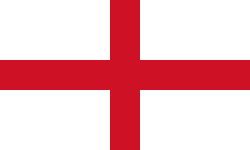| England at the 1930 British Empire Games | |
|---|---|
 | |
| CGF code | ENG |
| CGA | Commonwealth Games England |
| in Hamilton, Ontario, Canada | |
| Medals Ranked 1st |
|
| British Empire Games appearances | |
England at the 1930 British Empire Games (abbreviated ENG) was the first appearance of the country at the inaugural games. In the first edition held in Hamilton, Ontario, Canada, from 16 August to 23 August 1930, with 11 teams taking part. [1]
Contents
England topped the medal table with 25 gold medals, 22 silver medals and 13 bronze medals. [2]

